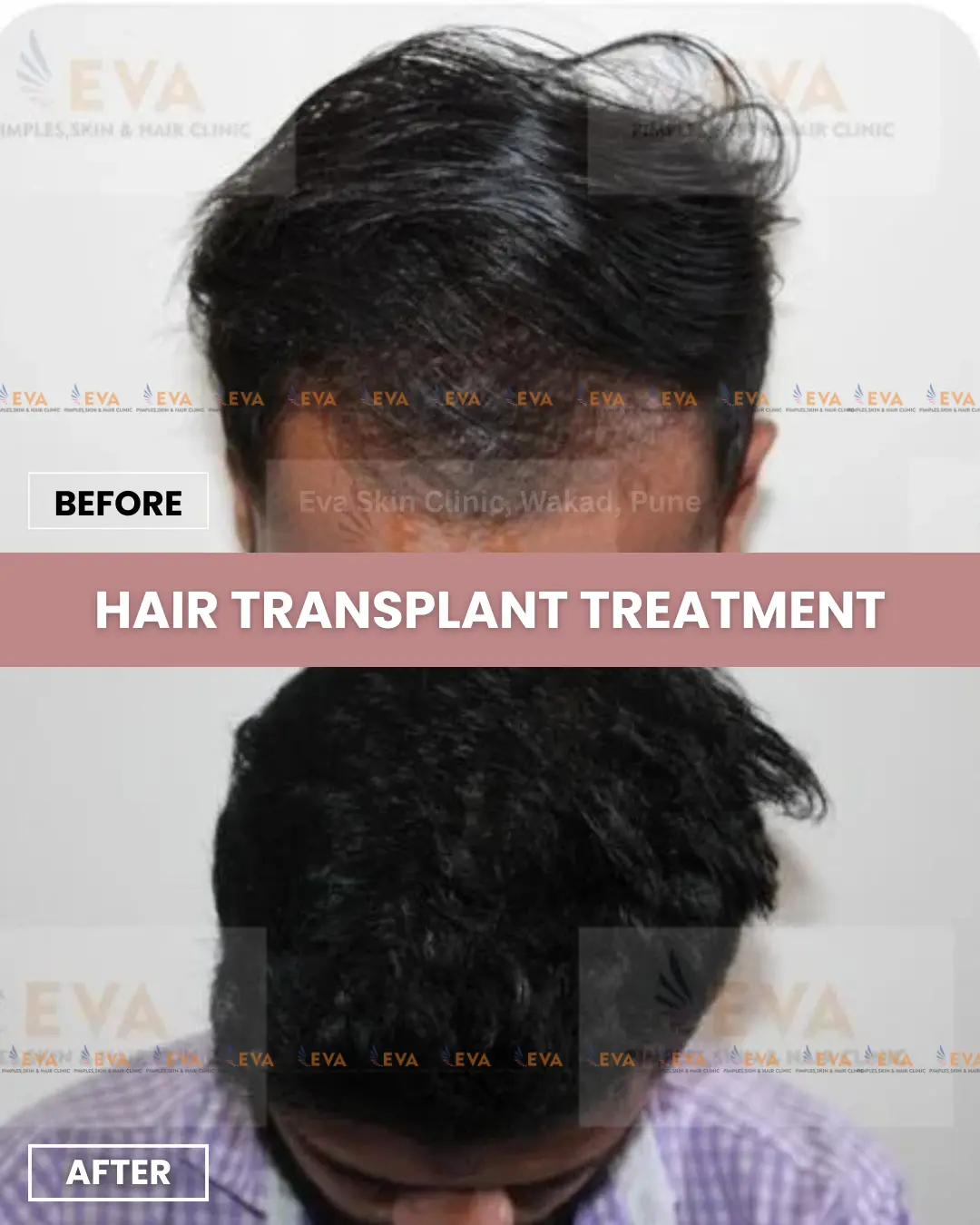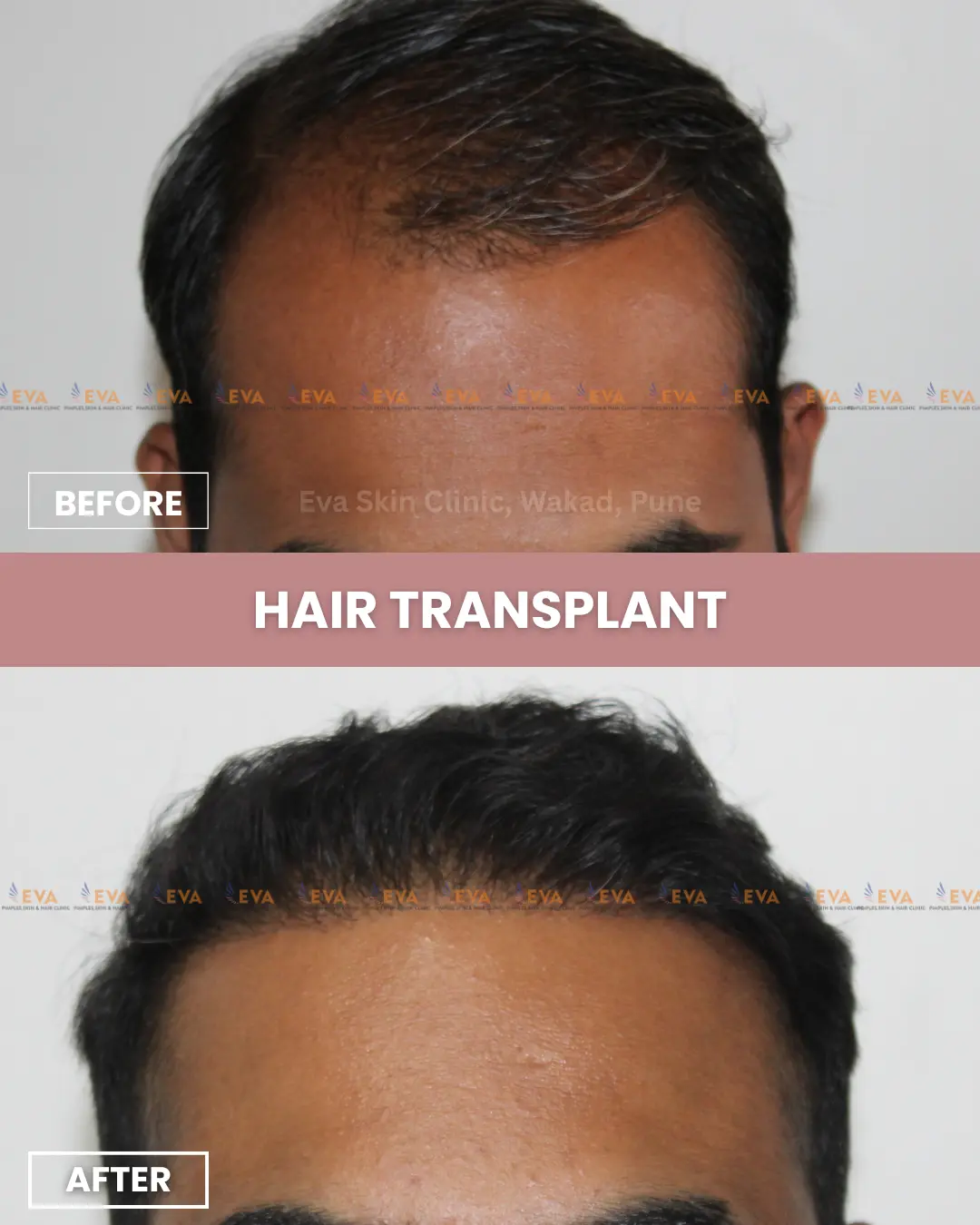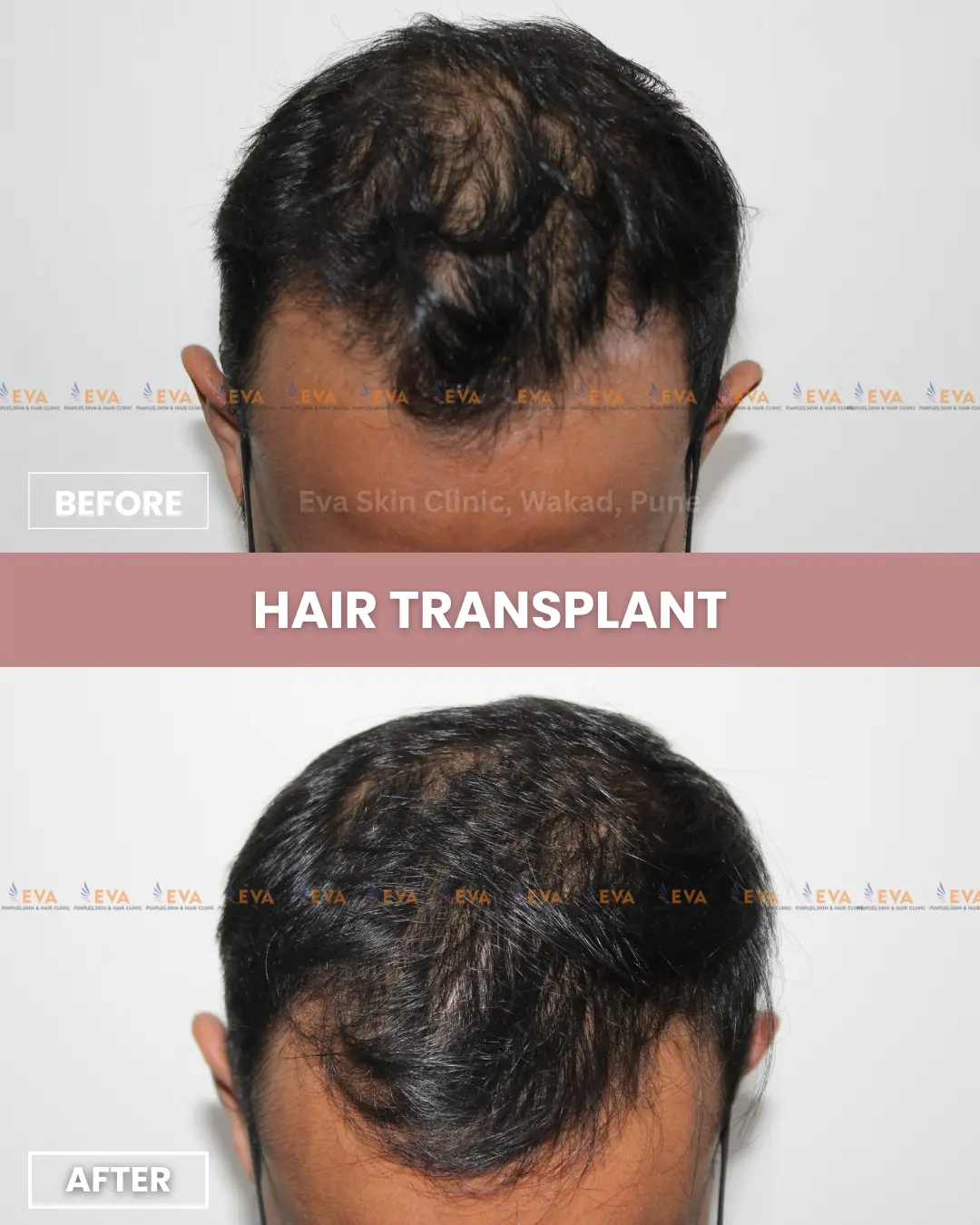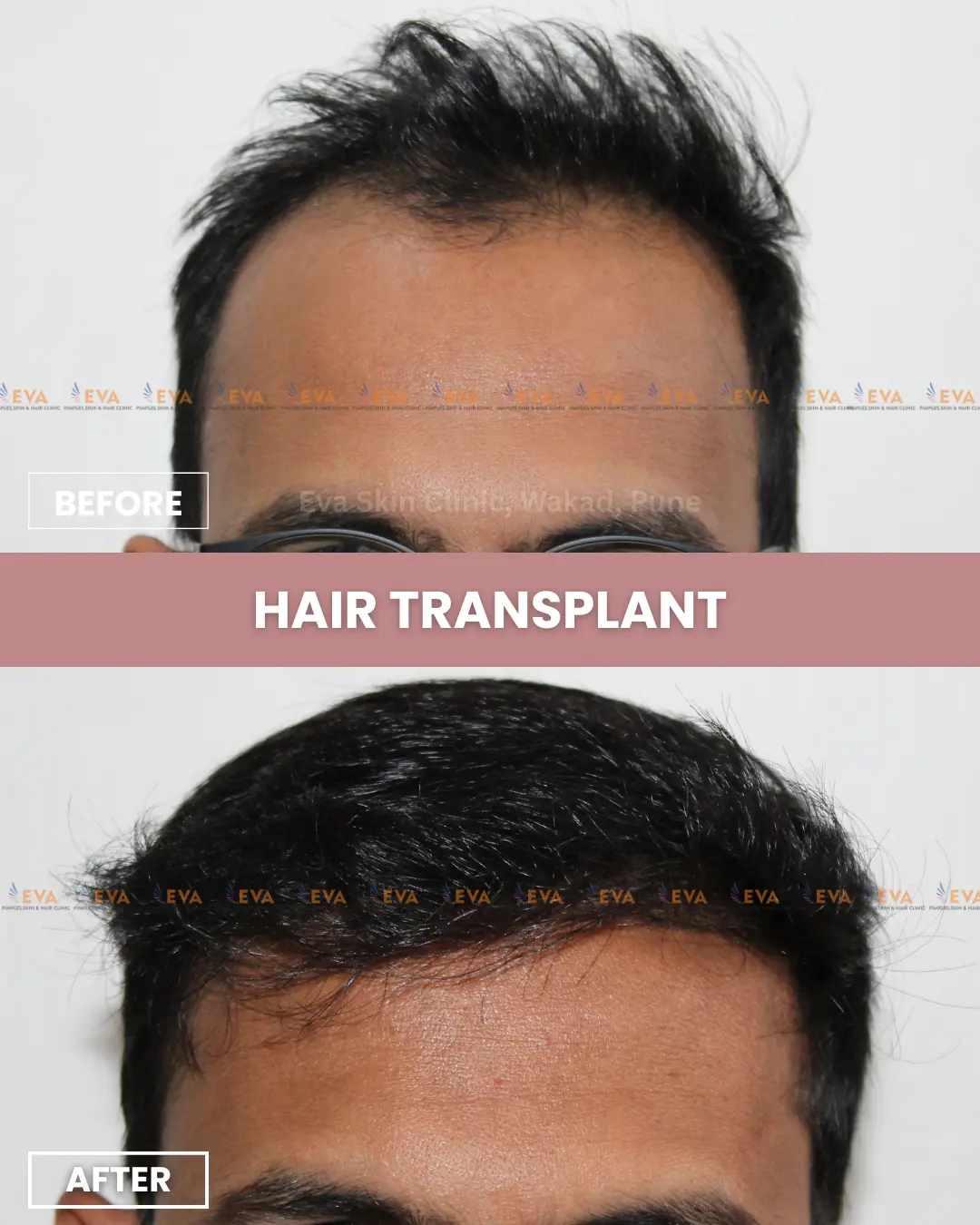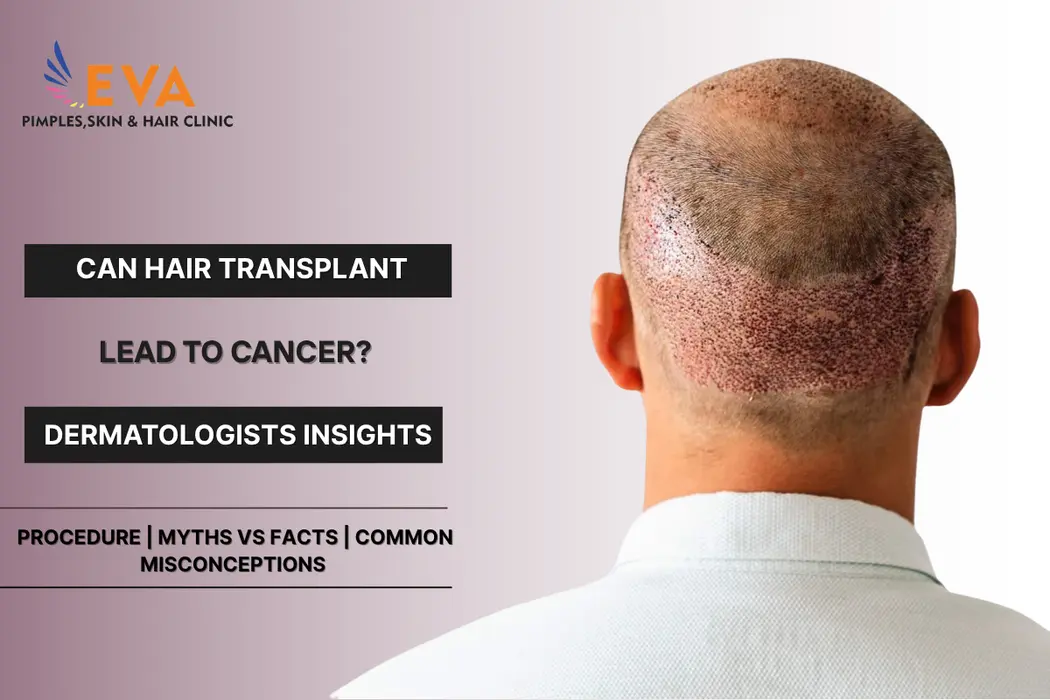Can Hair Transplant Lead to Cancer? Dermatologists Insights
Home | Blogs | Can Hair Transplant Lead to Cancer? Dermatologists Insights

Hair loss affects confidence, personality, and even self-esteem. For many men and women, a hair transplant feels like the perfect solution — a way to restore not just lost hair but also lost confidence. With advanced technologies and minimally invasive techniques, hair transplantation has become one of the most trusted cosmetic procedures worldwide.
However, one question that often makes people nervous is — Can a hair transplant lead to cancer?
This concern usually arises from online myths, misinterpreted information, or fear of surgical risks. But dermatologists and trichologists assure that there is no scientific evidence linking hair transplant procedures to cancer. Let’s understand the facts in detail and learn why hair transplant is considered a safe, medically approved procedure.

Key Topics Discussed in This Article
What Is a Hair Transplant?
Before addressing the cancer myth, let’s understand how a hair transplant procedure actually works.
A hair transplant is a minimally invasive cosmetic procedure where healthy hair follicles are taken from one part of the scalp (usually the back or sides) and transplanted to thinning or balding areas. The two main types are:
- FUE (Follicular Unit Extraction): Individual follicles are extracted one by one using micro punches and implanted directly into the bald area.
- FUT (Follicular Unit Transplantation): A strip of skin containing hair follicles is removed, and individual follicular units are separated and implanted.
Both procedures are performed under local anesthesia and are considered extremely safe when done by qualified dermatologists or trichologists.
No radiation, chemicals, or cancer-causing agents are used in a hair transplant. That means — scientifically and medically — there’s no link between hair transplant and cancer.
Can Hair Transplant Lead to Cancer? The Dermatologists’ View
The short answer: No, hair transplants do not cause cancer.
Dermatologists confirm that hair transplant surgery involves only the superficial layers of the skin and does not interfere with the cells responsible for cancer development. There’s no evidence — scientific or clinical — to suggest that the procedure can trigger or accelerate cancer.
Cancer usually develops due to genetic mutations, environmental exposure (like UV radiation or chemicals), smoking, or lifestyle factors. Hair transplantation, on the other hand, is a mechanical process of follicle relocation with no cellular alteration.
Let’s look at what top dermatologists emphasize when debunking this myth.
1. No Use of Carcinogenic Substances
A hair transplant uses sterile surgical tools and medically approved materials. The local anesthesia (like lidocaine) used during the procedure has been proven safe and does not increase cancer risk.
Dermatologists ensure every step of the process — from anesthesia to implantation — is performed under strict hygiene and safety protocols.
2. Hair Transplants Work on the Outer Skin Layer Only
Cancer arises from mutations in deeper skin or organ tissues. Hair transplant procedures are restricted to the epidermal and dermal layers, far above where such mutations occur. The follicles are simply repositioned from one part of the scalp to another — no cells are altered or modified.
3. No Radiation or Harmful Energy Involved
Unlike X-rays or radiotherapy, hair transplant procedures do not use radiation, lasers (in most cases), or heat that could potentially damage DNA. Even in laser-assisted transplants, the energy levels are superficial and regulated, posing no carcinogenic risk.
4. Myth Originates from Misinterpretation of Scalp Changes
Sometimes, after a transplant, people may experience mild inflammation, swelling, or redness. These are temporary healing responses, not signs of cancer. When misinformation circulates online or through unverified sources, it can cause unnecessary fear.
Dermatologists stress that with proper aftercare, the risk of any serious side effects is minimal.
What Science Says About Hair Transplants and Cancer
Numerous studies in dermatologic surgery have confirmed the safety of hair transplants. There has been no clinical evidence linking hair transplantation with any form of cancer — be it skin cancer, scalp cancer, or melanoma.
On the contrary, dermatologists often perform hair transplant procedures on cancer survivors who have experienced hair loss due to chemotherapy or radiation therapy. These patients benefit significantly from hair restoration without any safety concerns.
So, not only is a hair transplant not a cause of cancer, but it can actually help restore normalcy and confidence in those recovering from it.
Common Misconceptions About Hair Transplant and Health
Despite medical clarity, myths continue to circulate. Let’s debunk a few common ones:
Myth 1: Hair Transplant Damages the Scalp Permanently.
Truth: When performed by a certified dermatologist, hair transplants do not damage the scalp. The micro-wounds created during surgery heal completely, leaving no long-term harm.
Myth 2: Transplanted Hair Can Turn Cancerous Over Time.
Truth: Transplanted hair follicles behave just like normal hair follicles. They continue to grow naturally and are not altered at the DNA level.
Myth 3: Frequent Hair Procedures Increase Cancer Risk.
Truth: Regular cosmetic treatments such as PRP therapy, hair spa, or transplants have no relation to cancer formation. Proper hygiene and expert supervision ensure safety.
Eva Pimples Skin & Hair Clinic - Best Hair Clinic in Oune
While the procedure itself is safe, your clinic choice matters the most. The majority of complications arise when transplants are done by unqualified practitioners or in unregulated environments.
To stay safe, dermatologists recommend the following:
- Choose a Board-Certified Dermatologist or Trichologist: Always check credentials, reviews, and before-after results.
- Ensure Proper Sterilization & Safety Standards: A reputed clinic maintains a sterile environment and uses FDA-approved equipment.
- Discuss Your Medical History: Certain medications or conditions can affect healing — transparency helps your doctor tailor the procedure safely.
- Follow Post-Care Instructions: Proper aftercare prevents infection and supports healthy graft growth.
At Eva Pimples Skin & Hair Clinic, all procedures are performed under dermatologist supervision with strict hygiene, ensuring 100% patient safety.
Many patients who undergo hair transplant procedures at leading clinics report not just improved hair growth but also better mental and emotional well-being. The results are natural, the process is safe, and the confidence that follows is life-changing.
Women and men in their 30s, 40s, and 50s choose hair transplants to regain self-esteem — and dermatologists assure that when done right, it’s a completely cancer-free and medically approved procedure.
